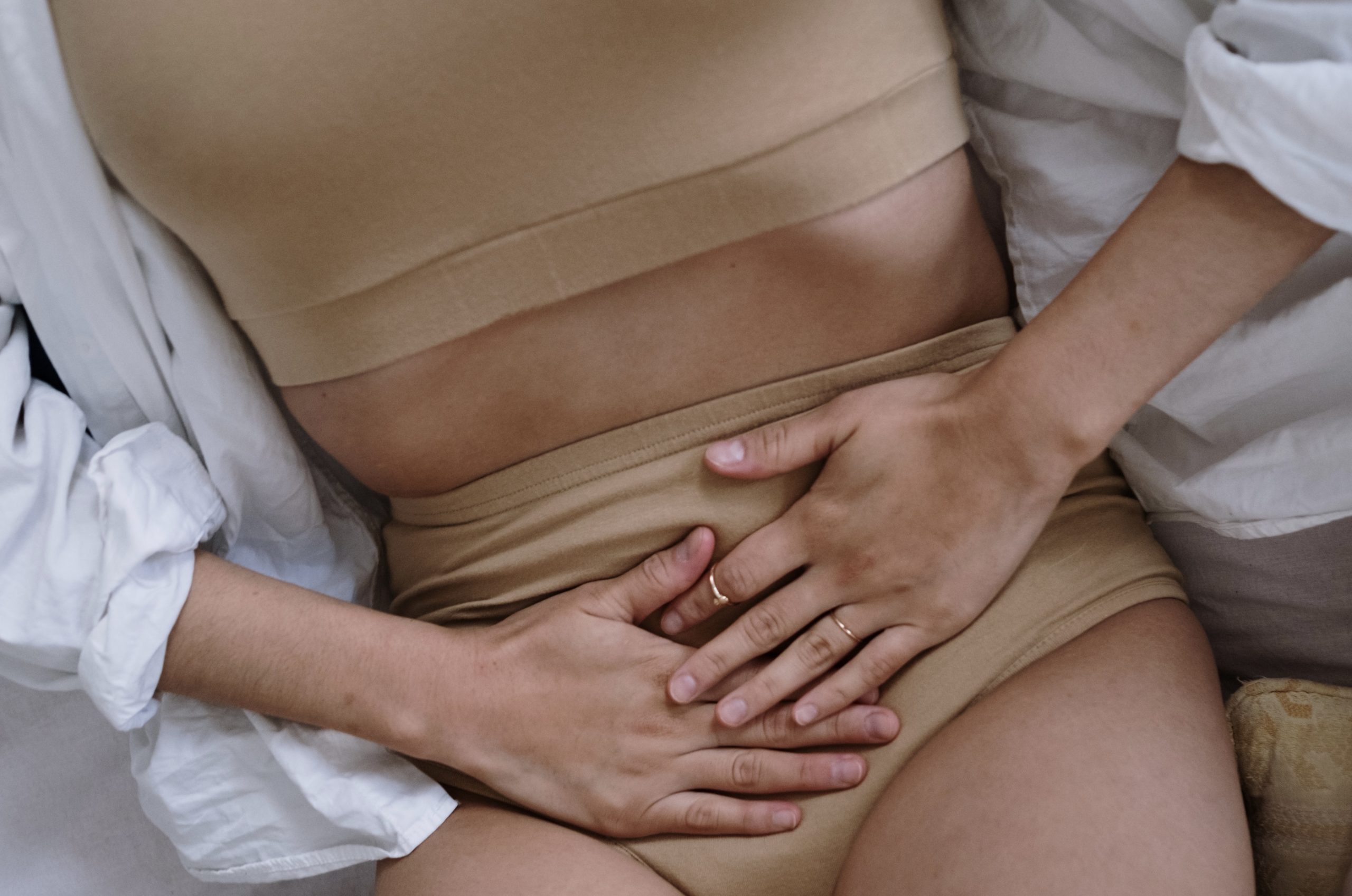Period pain (also called dysmenorrhea) refers to painful menstrual cramps usually in the lower abdominal region, and is a common occurrence in women of reproductive age. Period pain can be so severe in some women that it significantly impacts on daily activities and leads to school or work absenteeism. Nonsteroidal anti-inflammatory drugs (NSAIDs), oral contraceptives and intrauterine devices are often prescribed in conventional medicine, however, more and more women are turning towards natural therapies.
In TCM clinics, generally a combined treatment of both acupuncture and Chinese herbal medicine is recommended in the management of period pain. Several studies found promising evidence that TCM may be used as an effective and safe treatment for women suffering from period pain. For example, one systematic review found that acupuncture reduces period pain in primary dysmenorrhea more effectively compared to no treatment or NSAIDs (1). Another review found that the use of Chinese herbal medicine is more effective in reducing period pain in primary dysmenorrhoea compared to NSAIDs and the oral contraceptive pill (2).
Understanding period pain from a TCM perspective
A healthy period is one which is regular, on time once a month, painless or with minimal discomfort. Bleeding should not be excessive nor too scanty, and there should be no clots. According to TCM, a woman’s period can be affected by various internal and external influences such as an imbalanced diet, emotional disturbance, overexposure to cold and damp environments, lack of exercise and sunshine. These can lead to liver Qi stagnation and heart disturbance, cold obstruction, phlegm damp stagnation, and blood stasis in the body, where Chong Mai and Ren Mai are unable to ensure free circulation and communication with the uterus, resulting in period pain.
Liver Qi stagnation and heart disturbance
The liver meridian runs through the lower abdomen and genitalia and has an important role in menstruation as it is in charge of the alternating rhythm of storing and sending forth of blood. Vital circulations related to the uterus depend on the heart which in TCM is the master of blood, thus any disturbance in the heart can have an effect on menstruation. Both liver and heart Qi can be blocked by emotional and psychological disturbances (e.g. worry, grief, resentment, supressed anger) leading to an inability to spread out and make blood circulate smoothly. Menstruation is usually painful and irregular, arriving sometimes late and sometimes early. The quantity may also be irregular, being sometimes scanty and sometimes abundant, with blood that may be dark and clotted. Other symptoms may include swelling and tenderness of breasts, chest and ribs, emotional instability such as irritability or sense of oppression before menstruation. Treatment is therefore focused on soothing liver Qi and promoting circulation to unblock stasis.
Cold obstruction
Cold obstruction in the uterus is generally due to kidney Yang deficiency or the over consumption of cold and raw foods. Women with kidney Yang deficiency do not have enough warmth to promote circulation and bring blood to the uterus. Other symptoms may include sensitivity to cold, pain in the lower body and weakness in the legs, diminishing libido, abundant and abnormal urination. Menstruation often arrives late and blood can be scanty and pale. Excessive consumption of cold drinks and raw foods especially during menstruation can also lead to cold invading the uterus. In both cases, coldness blocks circulation in the abdomen creating pain. Treatment is aimed at warming the uterus to dispel cold and promote circulation, and kidney Yang needs to be tonified if it is deficient.
Phlegm damp stagnation
This is generally due to a deficiency in the spleen Yang/Qi, and/or a diet too rich in sweet and fatty foods. The ability to transform and transport fluids is weakened, leading to an accumulation of phlegm and damp in the woman’s body, which descends and blocks circulation to the uterus causing period pain. Other symptoms can include excessive vaginal discharges, oedema, congestion and oppression in the chest, nausea, and soft stools. Treatment should focus on drying or expelling damp blockages to re-establish circulation in the uterus, and tonifying spleen Yang/Qi if it is deficient.
Blood stasis
Having sexual intercourse during menstruation can block the circulation of Qi and blood leading to blood stasis in the uterus. In addition, any of the pathological conditions aforementioned (liver Qi stagnation and heart disturbance, cold and dampness in the uterus) may also contribute to blood stasis in the long term. Menstruation is often late, painful, with dark and clotty blood. Treatment is aimed at promoting the circulation of Qi and blood to remove stasis.
Preventative lifestyle and dietary guidelines
As we can see, period pain is a red flag that directs our attention to a deeper problem. If not addressed early, it may affect fertility and lead to other gynaecological issues in the long run. Menstruation is a natural purification process during which a woman is in a fragile state physically and emotionally. During this time, it is important to avoid stress, physical overexertion, sexual intercourse and overexposure to cold and damp conditions. It is recommended to get plenty of rest, keep the feet warm, wear adequate warm clothing during cold seasons and in cold environments.
Dietary wise, it is important to limit or avoid foods and drinks that are stimulating, cold and damp in nature, such as alcohol, tobacco, coffee, cold-temperature foods, raw foods, refined sugars and fatty foods. Also, since menstruation is strongly related to the heart, it is important to maintain a healthy emotional and mental state. Do the things you love, and love the things you do.
Author:
Dr Rachel Woo (TCM)
Morningside Acupuncture & Natural Therapies Healing Sanctuary
Disclaimer: Advice on this site is not a substitute for advice from a medical practitioner. If you have concerns, consult your medical practitioner first.
References
1. Woo HL, Ji HR, Pak YK, Lee H, Heo SJ, Lee JM, et al. The efficacy and safety of acupuncture in women with primary dysmenorrhea: A systematic review and meta-analysis. Medicine (Baltimore). 2018;97(23):e11007.
2. Zhu X, Proctor M, Bensoussan A, Wu E, Smith CA. Chinese herbal medicine for primary dysmenorrhoea. Cochrane Database Syst Rev. 2008(2):CD005288.

